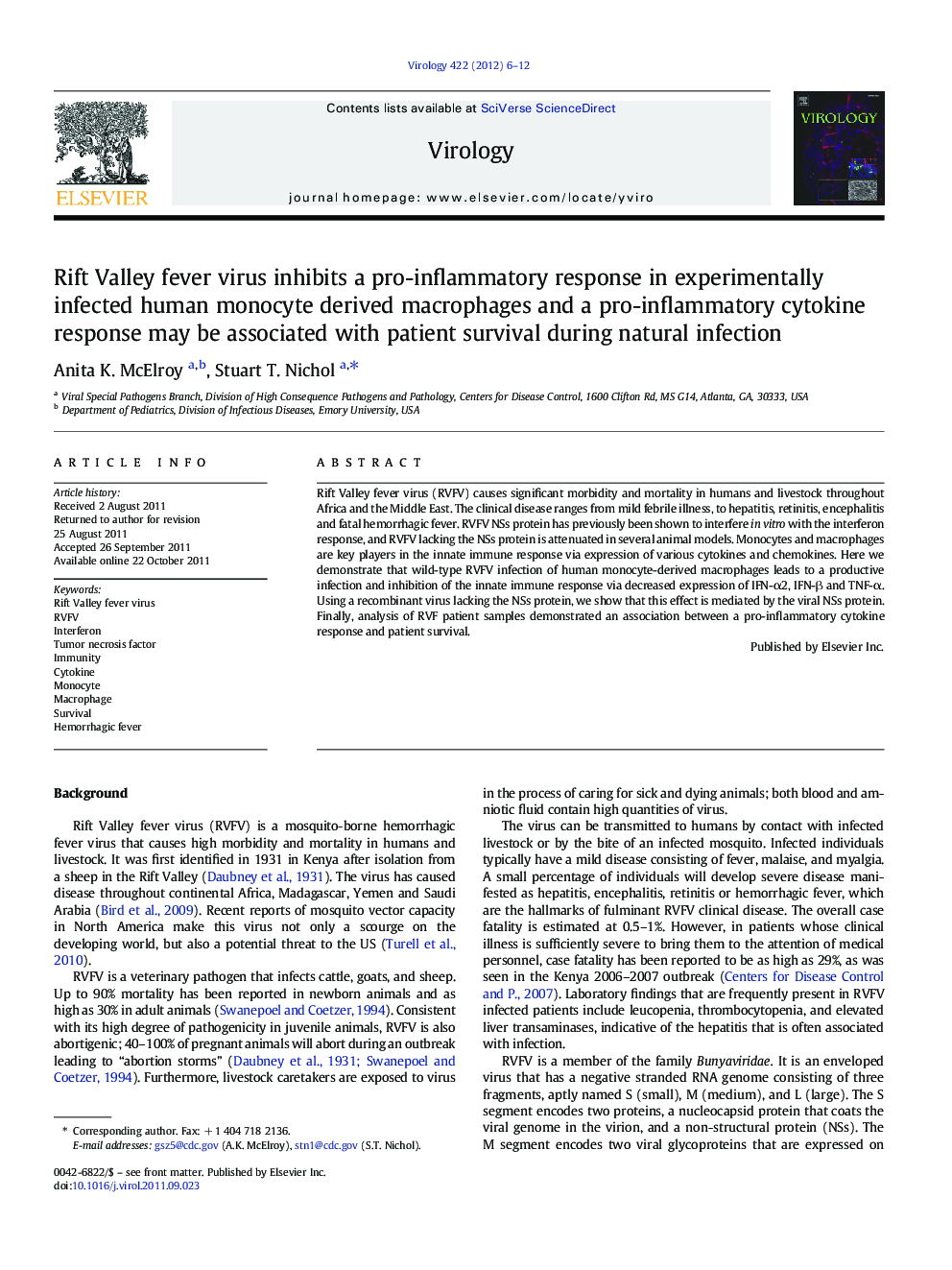| Article ID | Journal | Published Year | Pages | File Type |
|---|---|---|---|---|
| 6141289 | Virology | 2012 | 7 Pages |
Rift Valley fever virus (RVFV) causes significant morbidity and mortality in humans and livestock throughout Africa and the Middle East. The clinical disease ranges from mild febrile illness, to hepatitis, retinitis, encephalitis and fatal hemorrhagic fever. RVFV NSs protein has previously been shown to interfere in vitro with the interferon response, and RVFV lacking the NSs protein is attenuated in several animal models. Monocytes and macrophages are key players in the innate immune response via expression of various cytokines and chemokines. Here we demonstrate that wild-type RVFV infection of human monocyte-derived macrophages leads to a productive infection and inhibition of the innate immune response via decreased expression of IFN-α2, IFN-β and TNF-α. Using a recombinant virus lacking the NSs protein, we show that this effect is mediated by the viral NSs protein. Finally, analysis of RVF patient samples demonstrated an association between a pro-inflammatory cytokine response and patient survival.
⺠Human macrophages are susceptible to infection with Rift Valley fever virus. ⺠The virus inhibits activation of the innate immune response in infected macrophages. ⺠Innate immune system inhibition is mediated by the viral NSs protein. ⺠A pro-inflammatory cytokine response is associated with patient survival.
